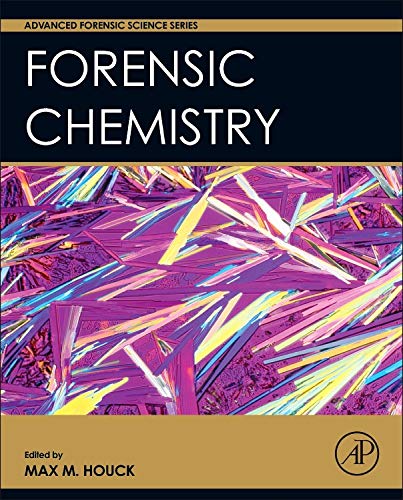All Categories



Forensic Chemistry (Advanced Forensic Science Series)
Share Tweet
*Price and Stocks may change without prior notice
*Packaging of actual item may differ from photo shown
- Electrical items MAY be 110 volts.
- 7 Day Return Policy
- All products are genuine and original
- Cash On Delivery/Cash Upon Pickup Available








About Forensic Chemistry
Review "I would certainly recommend this text for those who wish to have a basic grounding in forensic chemistry..it is not to be read as a novel but referred to as a series of academic papers." --Interfaces Product Description Forensic Chemistry is the first publication to provide coordinated expert content from world-renowned leading authorities in forensic chemistry. Covering the range of forensic chemistry, this volume in the Advanced Forensic Science Series provides up-to-date scientific learning on drugs, fire debris, explosives, instrumental methods, interpretation, and more. Technical information, written with the degreed professional in mind, brings established methods together with newer approaches to build a comprehensive knowledge base for the student and practitioner alike. Like each volume in the Advanced Forensic Science Series, review and discussion questions allow the text to be used in classrooms, training programs, and numerous other applications. Sections on fundamentals of forensic science, history, safety, and professional issues provide context and consistency in support of the forensic enterprise. Forensic Chemistry sets a new standard for reference and learning texts in modern forensic science. Review Covering a wide range of forensic chemistry, this volume in the Advanced Forensic Science Series provides up-to-date scientific learning on drugs, fire debris, explosives, instrumental methods, interpretation, and more About the Author Dr. Max M. Houck is an international forensic expert with over 25 years of experience. Houck has experience in the private sector, academia, local government, and worked at the Federal Bureau of Investigation Laboratory Division. He has worked as a forensic anthropologist, a trace evidence analyst, a researcher, and has managed millions of dollars in grants and awards. Most recently, he was the inaugural Director of the Department of Forensic Sciences in Washington, D.C., overseeing 150 employees and managing the forensic science laboratory, the public health laboratory, and crime scene sciences for the nation’s capital. Houck has worked on a number of mass casualty scenes, including the Branch Davidian Investigation and the September 11, 2001 attack on the Pentagon. Widely published, Houck has dozens of peer-reviewed journal articles and is the author and editor of numerous books. He is co-author of the best-selling Fundamentals of Forensic Science, Science of Crime Scenes, and Success with Expert Testimony, among others. He is the editor of the Advanced Forensic Science series of books. Houck is also founding co-editor of Forensic Science Policy and Management (the official journal of ASCLD), the only journal that addresses the management, policy, and administration of forensic science. Houck has served on numerous committees, including for the National Academies of Science, NIST, Interpol, The Royal Society, the Director of the FBI, and the White House. He is a popular public speaker and has given presentations at NASA, the Max Planck Institute, an Oxford Roundtable, as well as keynote talks at numerous international conferences. Houck has taught at several universities, including West Virginia University and University of Tampa. His research topics include management, leadership, and policy implications for forensic organizations. Houck has a Bachelors and Masters degree in anthropology from Michigan State University. He received his Ph.D. in Applied Chemistry Summa Cum Laude from Curtin University in Perth, Australia. He is a Fellow of the Royal Society of Chemistry.


















